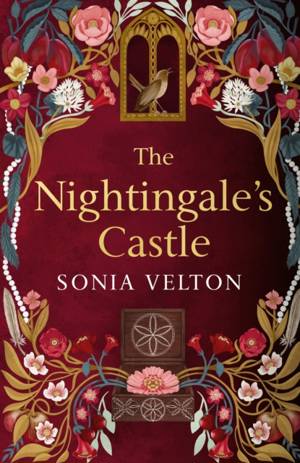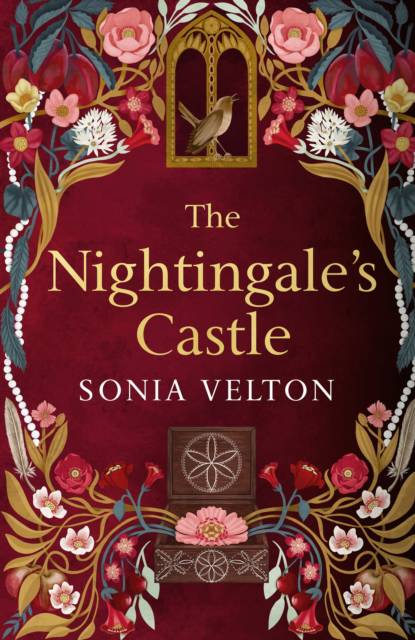
- Retrait gratuit dans votre magasin Club
- 7.000.000 titres dans notre catalogue
- Payer en toute sécurité
- Toujours un magasin près de chez vous
- Retrait gratuit dans votre magasin Club
- 7.000.0000 titres dans notre catalogue
- Payer en toute sécurité
- Toujours un magasin près de chez vous
The Nightingale's Castle
the gripping story of Erzsebet Bathory, the infamous sixteenth-century "Blood Countess"
Sonia Velton
Livre broché | Anglais
20,95 €
+ 41 points
Format
Description
'An absorbing work of fiction' Sunday Times
'I was blown away by this dark, enchanting story of witchcraft, power and injustice. ..nothing short of brilliant' Mary Chamberlain
Erzsébet Báthory, whose infamous place in history characterises her as the 'Blood Countess', was accused of the murder of over 600 peasant girls in Hungary, 1610. The Nightingale's Castle tells the story of a woman fighting for her survival and the complicated, often cruel, household over which she presides.
Praise for The Nightingale's Castle
'Moving, fascinating and haunting.. A mesmerising combination of gothic horror and elegant restraint' Francesca De Tores, author of Saltblood
'Gripping... a fascinating exploration of women's struggle to have their truth heard' Louise O'Neill
In 1573, Countess Erzsébet Báthory gave birth to an illegitimate child. The infant, a girl, was swiftly bundled up and handed to a local peasant family to be brought up in one of the hamlets surrounding the Castle. Many years later, 15-year-old Boróka reluctantly leaves the safety of the only home she has ever known in the foothills of the Carpathian Mountains. Trusted members of the countess's household have been sent out to gather new serving girls, and the kindly old man who has taken care of Boróka for almost all her life knows that it is dangerous to turn them away.
Boróka struggles to find her place at Cachtice Castle: she is frightened of the countess's reputation as an alleged murderer of young girls, and the women who run the castle are terrifyingly cruel. When plague comes into the heart of the castle, a tentative bond begins to form between Boróka and the Countess Báthory. But powerful forces are moving against a woman whose wealth poses such a threat to the king: can the countess really trust the women who are so close to her? And when the show trial begins against the infamous 'Blood Countess' where will Boróka's loyalties lie?
'I was blown away by this dark, enchanting story of witchcraft, power and injustice. ..nothing short of brilliant' Mary Chamberlain
Erzsébet Báthory, whose infamous place in history characterises her as the 'Blood Countess', was accused of the murder of over 600 peasant girls in Hungary, 1610. The Nightingale's Castle tells the story of a woman fighting for her survival and the complicated, often cruel, household over which she presides.
Praise for The Nightingale's Castle
'Moving, fascinating and haunting.. A mesmerising combination of gothic horror and elegant restraint' Francesca De Tores, author of Saltblood
'Gripping... a fascinating exploration of women's struggle to have their truth heard' Louise O'Neill
In 1573, Countess Erzsébet Báthory gave birth to an illegitimate child. The infant, a girl, was swiftly bundled up and handed to a local peasant family to be brought up in one of the hamlets surrounding the Castle. Many years later, 15-year-old Boróka reluctantly leaves the safety of the only home she has ever known in the foothills of the Carpathian Mountains. Trusted members of the countess's household have been sent out to gather new serving girls, and the kindly old man who has taken care of Boróka for almost all her life knows that it is dangerous to turn them away.
Boróka struggles to find her place at Cachtice Castle: she is frightened of the countess's reputation as an alleged murderer of young girls, and the women who run the castle are terrifyingly cruel. When plague comes into the heart of the castle, a tentative bond begins to form between Boróka and the Countess Báthory. But powerful forces are moving against a woman whose wealth poses such a threat to the king: can the countess really trust the women who are so close to her? And when the show trial begins against the infamous 'Blood Countess' where will Boróka's loyalties lie?
Spécifications
Parties prenantes
- Auteur(s) :
- Editeur:
Contenu
- Nombre de pages :
- 352
- Langue:
- Anglais
Caractéristiques
- EAN:
- 9780349146102
- Date de parution :
- 02-05-24
- Format:
- Livre broché
- Dimensions :
- 154 mm x 235 mm
- Poids :
- 440 g

Les avis
Nous publions uniquement les avis qui respectent les conditions requises. Consultez nos conditions pour les avis.






